Are you dreaming of owning a home in the sunny state of Florida but find the prospect of navigating mortgage options overwhelming? Fear not! This comprehensive guide to Florida FHA mortgages will walk you through the ins and outs of securing the best rates and finding the right lenders to make your homeownership dreams a reality.
What is an FHA Mortgage?
Before diving into specifics, let’s clarify what an FHA mortgage is. An FHA loan is a mortgage insured by the Federal Housing Administration, designed to help lower-income borrowers and first-time homebuyers get into the housing market. These loans are popular due to their lower down payment requirements and more lenient credit score criteria compared to conventional loans.
Benefits of FHA Loans
FHA loans offer several advantages that make them an attractive option for many Floridians:
- Lower Down Payments: You can put as little as 3.5% down if your credit score is 580 or higher.
- Flexible Credit Requirements: It’s possible to qualify for an FHA loan with a credit score as low as 500 (with a 10% down payment).
- Higher Debt-to-Income Ratios Allowed: FHA loans are more lenient regarding how much debt you can carry relative to your income.
- Assumable: You can transfer an FHA loan to a future buyer, which is a significant advantage if rates increase in the future.
Finding the Best FHA Mortgage Rates in Florida
Interest rates on FHA loans can vary, so it’s crucial to shop around to find the best rate. Here are some tips on securing the best mortgage rates in Florida:
1. Maintain a Good Credit Score
Your credit score is a critical factor in determining your mortgage rate. The higher your score, the lower your interest rate could be. Make sure to check your credit report for any inaccuracies and work on improving your score by paying your bills on time and reducing your debt.
2. Compare Lenders
Don’t settle for the first lender you talk to. Reach out to multiple lending institutions, including banks, credit unions, and online lenders to compare rates and fees.
3. Consider the Timing
Mortgage rates can fluctuate based on economic conditions. If rates are particularly high, it might be worth waiting if you can afford to. Conversely, if rates drop, it’s a good opportunity to lock in a low rate.
4. Look for State and Local Programs
Florida offers various state and local programs that can help reduce the interest rates of an FHA loan even further, especially for first-time homebuyers.
Top FHA Lenders in Florida
Choosing the right lender is as crucial as finding the best rate. Here are some top FHA lenders in Florida based on customer service, competitive rates, and favorable terms:
1. Quicken Loans
Quicken Loans is renowned for its customer service and offers a fully online application process with a team dedicated to FHA loans, making it a convenient option for many.
2. Wells Fargo
As one of the largest mortgage lenders in the U.S., Wells Fargo offers the reliability of a big bank with competitive FHA loan rates and extensive experience with FHA guidelines.
3. Bank of America
Known for its vast network and resources, Bank of America offers an educational approach to borrowers new to FHA loans and homeownership.
4. Local Credit Unions
Local credit unions often offer competitive rates for FHA loans and personalized service. For instance, the Suncoast Credit Union and Central Florida Educators Federal Credit Union are worth checking out.
Applying for an FHA Loan in Florida
The application process for an FHA loan doesn’t differ much from other types of loans but here’s a streamlined approach to get you started:
1. Pre-Approval
Start with getting pre-approved by a lender. This involves verifying your financial information and credit score to determine how much you can borrow.
2. Find a FHA-Approved Home
Not all homes qualify for FHA loans. Make sure the home you are interested in meets the FHA’s property requirements.
3. Complete the Application
Submit all necessary documents, such as proof of income, tax returns, and employment verification. Your lender will guide you through the process.
4. Underwriting
Once your application is complete, it goes through underwriting. The underwriter reviews your financial details and ensures everything meets the FHA’s guidelines.
5. Closing
After the loan is approved, you’ll go to closing, where you’ll finalize all the paperwork, make your down payment, and take ownership of your new home.
Navigating the FHA mortgage landscape in Florida can seem daunting, but with the right information and a strategic approach, it’s entirely manageable. By understanding the benefits of FHA loans, maintaining a solid credit score, comparing rates from various lenders, and choosing the right mortgage provider, you can secure favorable terms that make




